Firestarter (1984)
“If I do something bad, will you still love me?”
|
Synopsis: |
|
Genres, Themes, Actors, and Directors:
Response to Peary’s Review: He notes that the “picture’s main selling point is the special effects, most of which involve people and objects bursting into flames”, in addition to a climax “filled with flying fireballs.” He writes that “George C. Scott, wearing a pony tail, has a field day as a maniacal government assassin who literally wants to bash Charlie’s brains in”: … but “all the other actors are poorly used.” I’m essentially in agreement with Peary’s assessment of this film, which was purportedly a major disappointment to King. The special effects are super-cool, and Barrymore inhabits her role with conviction — but there’s far too much we never learn about her family’s situation (what, exactly, happened after Keith and Locklear underwent experimental treatment, apparently married, and had a child?), and various supporting characters — including Art Carney and Louise Fletcher as kindly farmers who offer shelter to the runaway duo: … and Sheen as a corrupt politician: — are underdeveloped. Redeeming Qualities and Moments: Must See? Links: |
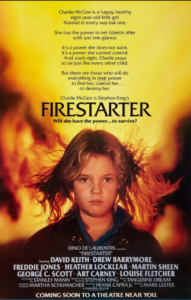
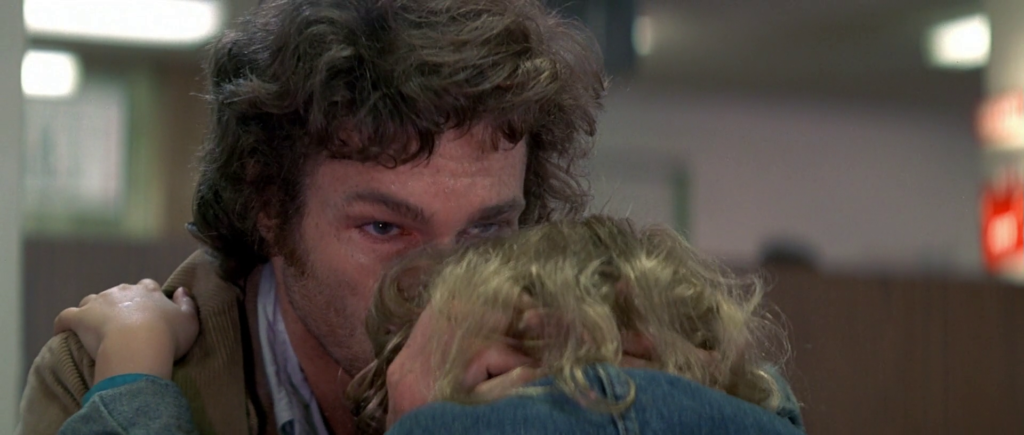
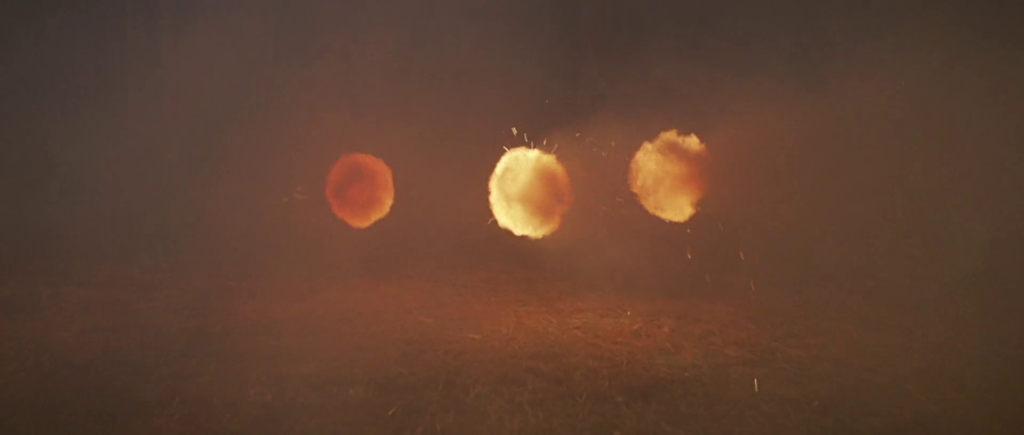
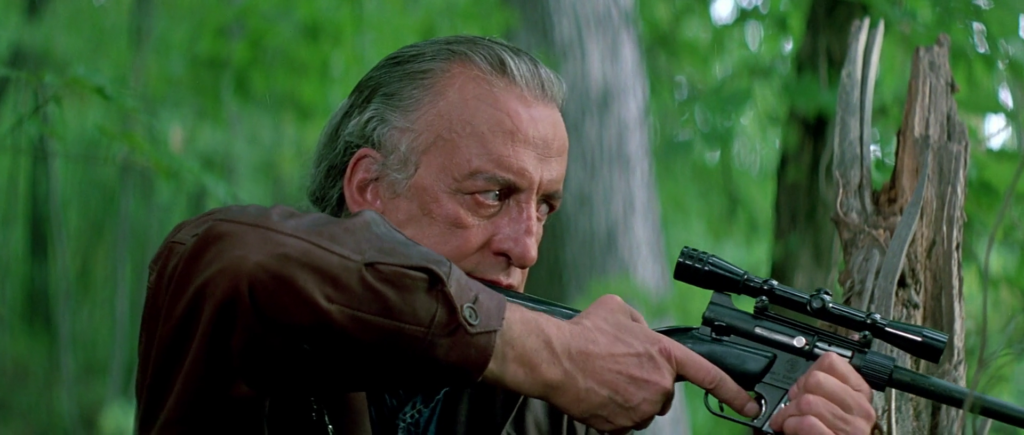
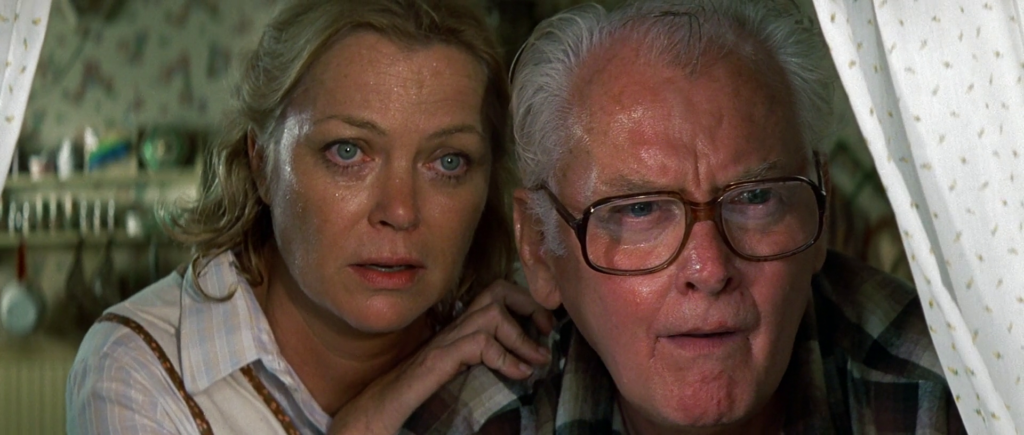
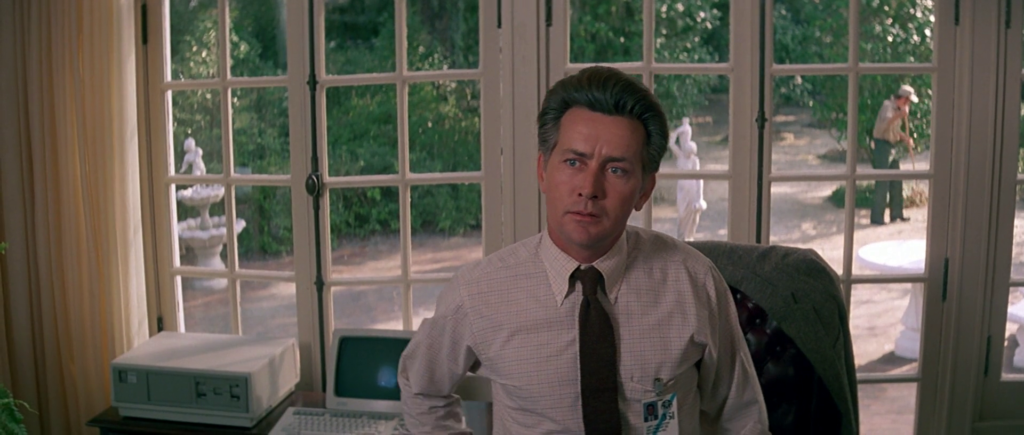
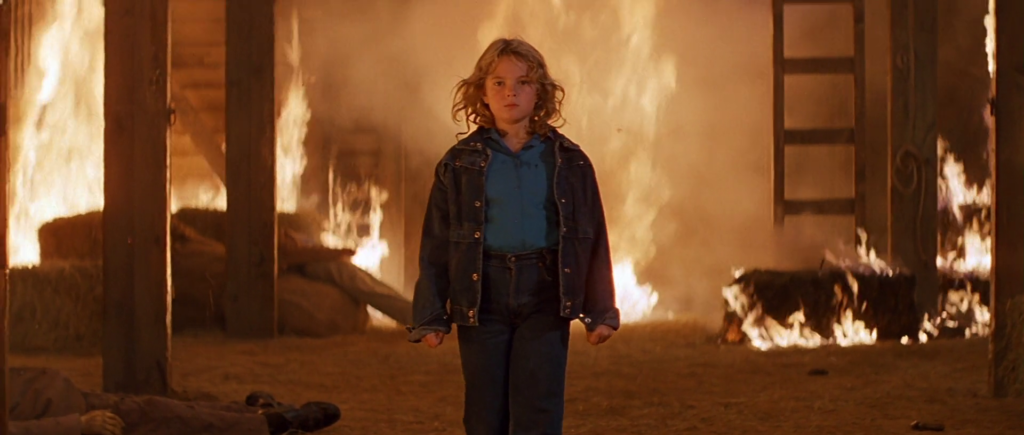
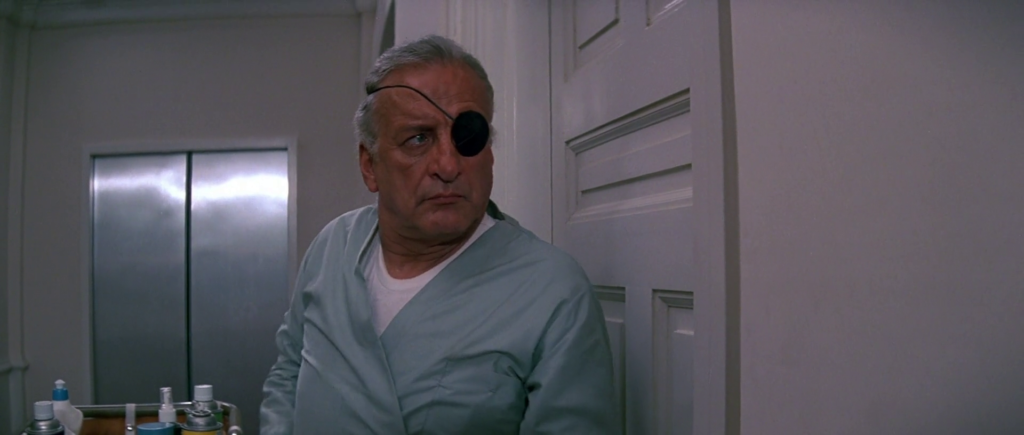
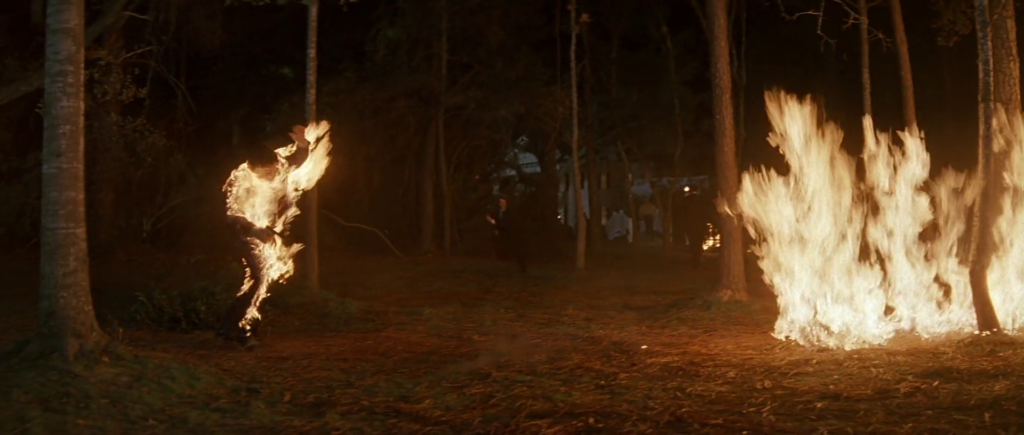
2 thoughts on “Firestarter (1984)”
⭐️⭐️⭐️ out of ⭐️⭐️⭐️⭐️
Solid, well crafted adaptation of Stephen King’s 1980 sci-fi horror novel works well for the most part due to decent performances, an excellent score (Tangerine Dream) and fabulous SPFX. However, it could have done with trimming and pacing up. A modest and enjoyable film with a great firey climax. Not must see for FFs.
First viewing. Skip it.
Weirdly uninvolving, often flat-out-boring film that is also occasionally unintentionally funny. For something promising thrills, this thing is deadly dull.
This is among the King books I haven’t read. The author’s main complaint about the adaptation was “oversimplification”. Still, one reader at goodreads.com called the novel “520 pages of nothing”.
It’s basically a one-trick pony rip-off of ‘Carrie’ – which, in its own film version (something of an improvement on its source), had more of a plot and better character development.
Director Mark L. Lester gives us an exciting first few minutes before the ball is completely dropped on the narrative. Halfway-through, Scott enters – giving the film a momentary lift with a hint of the kind of committed performance that dwarfs everything around him. The script soon lets him down.
The final result leaves the viewer with two hours of nothing.